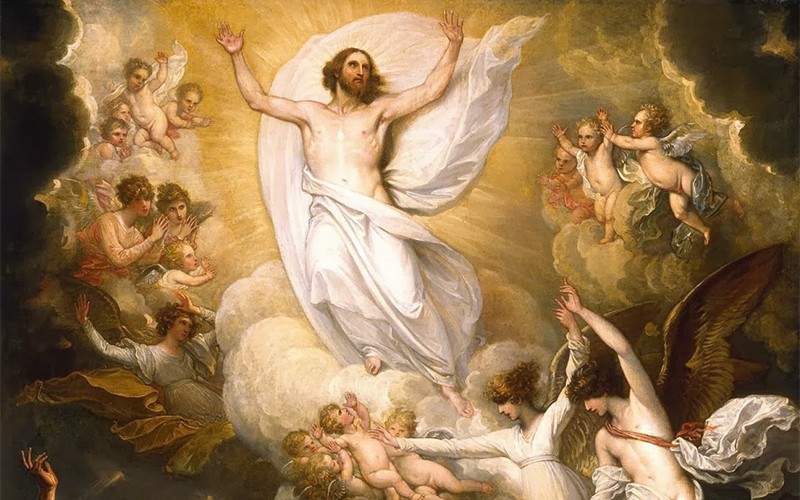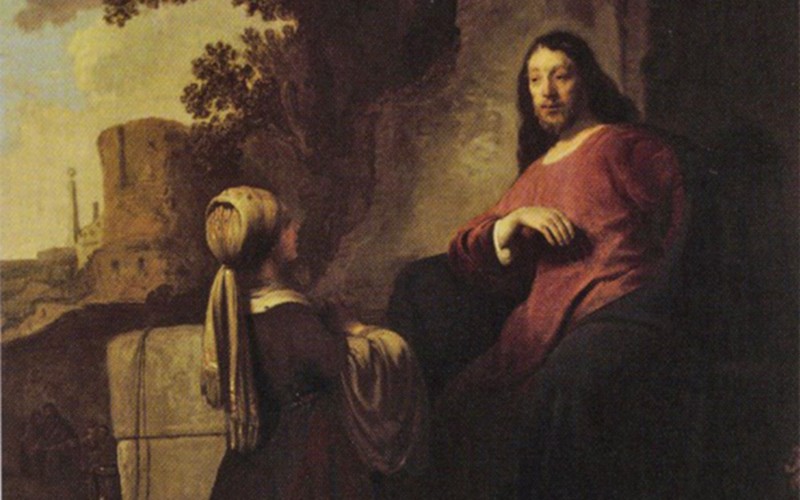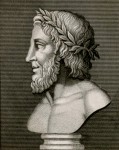The Sublime Existence Among Us

John
In chapter 17 of the Gospel narrated by John, Jesus left us one of the most beautiful and most touching pages of His Sublime Existence: the Prayer to the Heavenly Father, in which He expresses all the power of His Love for those who God has given Him to look after. And, as a devoted Shepherd of the human flock, He has taught them regarding His New Commandment—“Love one another as I have loved you. Only by this shall all of you be recognized as my disciples.” He assured that “there is no greater Love than to lay down his own Life for his friends” (The Gospel according to John 13:34 and 35; 15:13).
And the Lamb of God sacrificed Himself for the world, even for those who considered to be His enemies and who crucified Him. Indeed, there is no greater act of altruism than this: to offer oneself in sacrifice for Humanity, which is oblivious to its collective survival. However, it so happens that on the third day the Ecumenical Christ resurrected from the dead, spent forty days with His disciples, and the announcement of His glorious return to Earth—to be crucified no more—is so present in His Mission that the Angels confirmed this fact in the moment when He returned to the Spiritual World: “And after He said this Jesus was taken up before their very eyes and a cloud hid Him from their sight. They were looking intently up into the sky as He was going, when suddenly two Angels dressed in white stood beside them. “Men of Galilee,” they said, “why do you stand here looking into the sky? This same Jesus who has been taken from you into Heaven will come back in the same way you have seen Him go into Heaven.” (Acts of the Apostles 1:9 to 11)

Greater emphasis to the Resurrection
On April 1, 1983, Good Friday, at Casa D’Itália, in the city of Salvador/BA (Brazil), when launching the Livro Jesus [Jesus Book], I declared: In His victory over death lies the driving force of Christianity and His disciples’ certainty of triumphing over themselves. The main message of Holy Week in the present time, when people insist on invoking death, making it their goddess, is that the Divine Master was never really dead. The Spirit does not die. That is the reason why we are immortal. We were created in the image and likeness of the Almighty. And “God is Spirit,” as the Heavenly Educator revealed to the Samaritan woman at Jacob’s well (The Gospel according to John 4:24). Jesus-Spirit reappeared to human eyes. With this extraordinary act He made appear in the soul of His followers the necessary courage to face up to all hatred and worldly persecution, without them also being bearers of this harmful behavior. That is why I always emphasize that bravery is to accept a task, however difficult it may appear, and seeing it through to the end courageously without becoming disheartened and with one’s eyes fixed on the Christ of God.

Jesus
Jesus conquered death

Luke

Mark
The Gospel according to Luke 9:60 tells us that on one occasion a young man wanted to follow the Lord, but before he did so he intended burying his father who had died. The Eminent Educator, with the idea of testing him, gave him this advice: “Let the dead bury their own dead, but you go and proclaim the Kingdom of God.” And in the notes of Mark 12:27: “God is not the God of the dead, but of the living,” in other words, of eternal beings. And He added: “Because you do not believe in this you are badly mistaken.”
The unforgettable message of His Passion, mainly for this period of apocalyptic times, is victory over death.

Paul
In the First Letter to Corinthians 15:55, we find this incisive question from the Apostle Paul: “Where, O death, is your victory? Where, O death, is your sting?”
In fact, the dead do not die. For those who have eyes to see and ears to hear, death is a rumor.
By overcoming death Jesus was able to demonstrate what was said in the Good News narrated by the reports of John 16:33: “I have overcome the world.” And the Master wants us—having Him by our side—to do the same. When nations get to know the reality of eternal spiritual life better they will reformulate everything concerning their social relationships, including in the planetary sphere. Meanwhile, society remains almost exclusively fixed on the material, which is a mantle for hiding from Human Beings the true meaning of their existence. This is what gives rise to mistakes, sometimes tragic, not only in religion, but also in politics, art, sports, science, philosophy, and so forth. It can be compared to the Egyptian legend of the fish that lived at the bottom of a little lake and disbelieved in news of rivers, seas and oceans vastly larger than their restricted habitat, preferring to fearfully wander in the darkness of mediocrity.

Theocritus
Such is the case with improvident earthly creatures, who are threatening themselves with unspeakable dangers of indescribable destruction, because the small lake finally dried up and all the fish succumbed, parched. However, as Theocritus (320-250 B.C.) used to say: “While there is life there is hope.” And Life is eternal.
The comments do not represent the views of this site and are the sole responsibility of their authors. It denied the inclusion of inappropriate materials that violate the moral, good customs, and/or the rights of others. Learn more at Frequently asked questions.